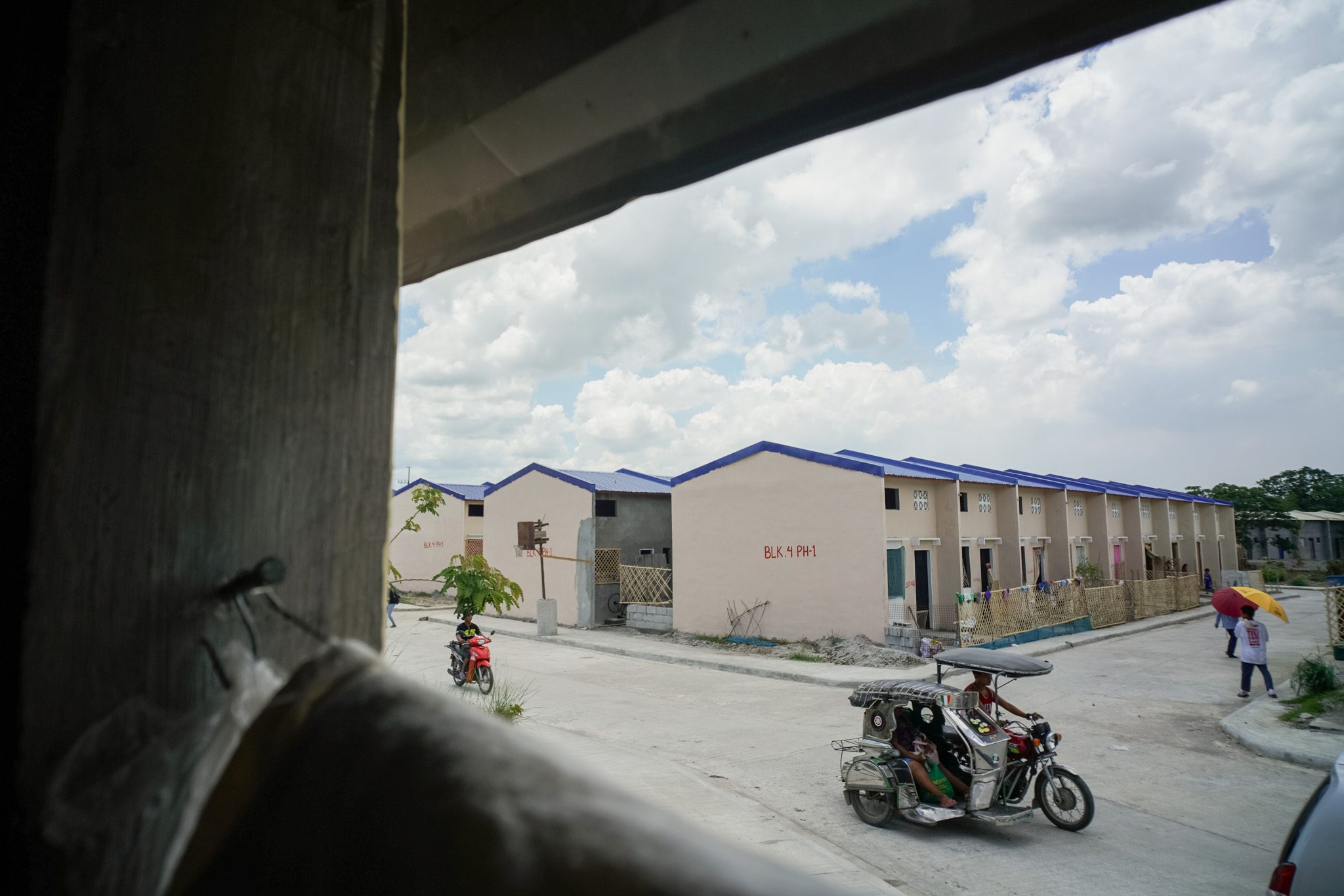SUMMARY
This is AI generated summarization, which may have errors. For context, always refer to the full article.

MANILA, Philippines – Based on the proposed 2018 budget submitted to Congress, the National Housing Authority (NHA) will have to remedy the ballooning housing backlog problem with only P2.2 billion.
If Congress retains this proposal, the NHA’s budget for next year will be P10 billion lower than its 2017 allocation of P12.68 billion–about an 80% reduction.
The proposed 2018 allocation is far below the housing agency’s estimate that P100 billion is needed every year in order to provide homes for 1.5 million informal settlers, which comprise the total housing backlog of 5.5 million. (READ: Robredo: Gov’t must build over 2,600 homes a day to beat backlog)
NHA General Manager Marcelino Escalada told Rappler that he proposed for P60 billion for next year but the Department of Budget and Management only allowed a budget of P2 billion.
“Hopefully, we will ask the Congress to increase the budget. If not, we go back to the drawing board but DBM is already fixed with that amount,” he said in a brief interview.
Of the NHA projects, it is the housing for the members of the Armed Forces of the Philippines and Philippine National Police which will have the biggest funding at P1.6 billion while resettlement program for informal settlers will only get P577 million. (MAP: Where are the unoccupied housing sites for police and soldiers?)
President Rodrigo Duterte ordered the construction of new housing for the security personnel after he gave away the unoccupied units in Pandi, Bulacan, to members of the urban poor group Kadamay. This move came as thousands of Kadamay members took over the units that have been standing idle for at least 5 years.
Meanwhile, the proposed budget 2018 for the Social Housing Finance Corporation (SHFC) was P773 million–higher by P494 million. This year it is working on a P279 million budget, while in 2016 it was allocated P4.15 billion.
SHFC is the agency which bankrolls housing projects targeting low-income earners either formally employed by companies or through informal and independent means like sidewalk vendors.
‘Build, Build, Build’ effect
Both Escalada and Presidential Commission for the Urban Poor (PCUP) chair Terry Ridon fear the possible repercussions of the low budget given the start of the infrastructure projects under the administration’s “Build, Build, Build” plan.
“I would rather it not be cut, especially since we are undertaking the “Build, Build, Build” program. At this point, it would be in the best interest of the informal settlers affected of the infrastructure projects to have a stand by fund for them to be provided adequate relocation or financial assistance,” Ridon said after Thursday’s budget hearing of the PCUP in the Senate.
Escalada explained that housing is also integral to the government’s infrastructure plan but there are still components that they would have to address and finance.
Meanwhile, Kadamay lamented that the NHA budget cut manifests that there is no relocation plan for the informal settlers despite President Rodrigo Duterte’s “no demolition without relocation” promise.
“We are not calling for an increase in the NHA budget, many times, their resources have been used to demolish and forcibly relocate urban poor Filipinos. We need a budget for free mass housing and not one for militarization, demolition and other forms of attacks on poor Filipinos,” she added. – Rappler.com
Add a comment
How does this make you feel?





There are no comments yet. Add your comment to start the conversation.